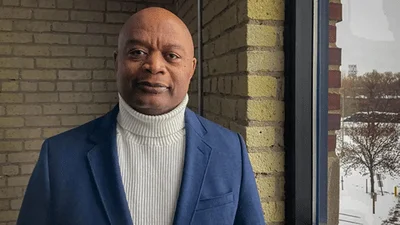The publication is reproduced in full below:
INITIATING A POSITIVE AND PRODUCTIVE DIALOGUE BETWEEN THE OROMO
COMMUNITY OF MINNESOTA AND THE U.S. STATE DEPARTMENT
______
HON. BETTY McCOLLUM
of minnesota
in the house of representatives
Tuesday, December 7, 2021
Ms. McCOLLUM. Madam Speaker, the ongoing civil conflict in Ethiopia is inflicting terrible suffering on the Ethiopian people of all ethnic groups. The mass killing of civilians, the violence against women, blatant human rights abuses, and displacement of nearly 2 million people are all the consequences of the Ethiopian government's brutal use of military force earlier this year. Now a civil war is raging among armed groups organized along ethnic lines that threatens the lives of millions of innocent civilians and has the potential to destabilize all of East Africa.
In Minnesota, we are fortunate to be home to the largest community of Oromo-Americans in the U.S. and quite possibly the largest Oromo community outside of Ethiopia. I am honored to represent many Oromo-
American constituents, but I can say they are suffering because their family and friends in Ethiopia have for years been enduring violence, repression, and human rights abuses by the current government, and preceding Ethiopian governments as well.
Yesterday, my office hosted a direct dialogue between the leaders of the Oromo Community of Minnesota and representatives of the U.S. State Department's Africa Bureau led by Principal Deputy Assistant Secretary
(PDAS) Ervin Massinga. The dialogue was an opportunity for the President of the Oromo Community of Minnesota, Ms. Leyla Abawari, and her colleagues to directly share their perspectives, concerns, and recommendations for U.S. diplomatic engagement in Ethiopia, as well as elevate the political and humanitarian issues facing the people of Oromia.
The Oromo-American representatives voiced their strong desire for ongoing U.S. diplomatic action with the goals of achieving peace, respect for human rights, democratic political freedoms, the release of political prisoners, and a humanitarian response that alleviates the horrible human suffering faced by the Oromo and all innocent Ethiopians caught in this conflict.
I applaud the State Department's diplomatic efforts in Ethiopia despite facing a very challenging situation and I know the Biden Administration is committed to continuing to work tirelessly to achieve peace. I am deeply appreciative of PDAS Massinga's willingness to hear the concerns of the Minnesota Oromo community and respond with direct, respectful, and honest answers.
My long relationship with the Oromo community of Minnesota is built on respect for their many contributions the success of our state and country. l will continue to work closely with the community to ensure that their relatives and friends in Oromia, and all of Ethiopia, can live in peace with the hope and opportunity for the future.
I include in the Record the following letter from the Oromo Community of Minnesota outlining their views on the situation in Ethiopia and the conditions faced by the Oromo people.
Commentary on the Civil War in Ethiopia
(Oromo Community of Minnesota)
Ethiopia is fast approaching state collapse. The civil wars raging in the north, south and western parts of the country leaving hundreds and thousands of dead, injured, and displaced. The war has featured gruesome human rights abuses, massacre, sexual assault, and substantial humanitarian crisis. The media and international diplomacy have been preoccupied by the war in the northern that involves Ethiopian federal government and allied forces from Amhara, Eritrean forces one side and TPLF/TDF on the other side, the preceding and equally damaging civil war in Oromia has not been spotlighted.
For the last three years western Oromia and southern Oromia have been under military command post by supplanting civil administration. Ethiopian government tried to justify the imposition of military as counter insurgency measures against OLA. As Amnesty and other human rights organizations have documented Ethiopian securities have committed egregious human rights abuses, extrajudicial killings, rape, torture, mass arrests, burning village and displacement under the guise law enforcement measures. Most of the victims have been students, farmers, members of opposition parties, families of opposition parties and government employees. So far government have neither investigated nor prosecuted the perpetrators of crimes.
Although the situation in Ethiopia continues to be exceedingly volatile, we would like to extend our heartfelt appreciation to the United States government for taking important steps in pressuring the Ethiopian government and fighting parties to hold a national dialogue. We support the administration's decision to impose sanctions on those responsible for human rights violations. It is imperative that the warring parties, including the Ethiopian National Defense Forces, the Tigray People's Liberation Front, and Amhara regional forces, and other armed groups cease all hostilities, protect human rights, allow unfettered humanitarian access, and cooperate with independent investigations of human right abuses being perpetrated against civilians. Oromos represent over 40 percent of the population, therefore, play a significant role in bringing lasting peace to Ethiopia's problems. It is becoming more evident that the country continues to face a complete destabilization, and the opportunity to take decisive action is closing rapidly. We feel addressing the following significant factors in the context of the entire country is essential to address the crisis.
The Oromia region is being devastated by the conflict, just this week, the nation is mourning the loss of Members of Karrayyu Gadaa leadership (the council of an Oromo sacred Instititution who were massacred during a prayer ceremony `Waaq Kadhaa' by government forces on December 1st, 2021.
State-sanctioned violence in Western Oromia: Under the pretext of fighting armed groups, government security forces themselves have been the perpetrators carrying out extrajudicial killings, rape, and human rights abuses (see: 2020 Amnesty Report).
Drone attacks are continuously being carried out in Wollo and Wollega, claiming thousands of lives. These drones are being supplied by the Turkish, UAE, and Iran governments.
Lack of humanitarian access to areas of Guji, Borana, Bale, Wollega, and Wollo that continue to be affected by the conflict in the Oromia region.
The detention of the prominent Oromo Political opposition leaders--
Following the assassination of beloved Oromo singer and activist Haacaaluu Hundeessaa, key political leaders and government opposition figures such as Jawar Mohammed, a former Minnesotan resident, and Bekele Gerba was imprisoned in the capital, Addis Ababa. Currently, more than 100,000 Oromo youth prisoners across the country are held without due process of law.
An ongoing communications blackout in Oromia
Mass imprisonment and ethnic profiling of the Oromo people
Lack of freedom of expression (media) and association
The profiling and detention of American citizens of Oromo origin in Ethiopia. Recently, Mr. Yonas Gudata, a Minnesotan resident, has been unlawfully detained by the Ethiopian government after traveling there to visit his sick father.
The Forced recruitment of child soldiers in the Ethiopian army--
Children as young as eight are being forced into conscription. They are being placed on the frontlines to be shielded from ENDF soldiers.
The Rhetoric by regime supporter diasporas despite being pro-regime voices, they continue to undermine the pressure by the U.S. and advocate for the Ethiopian regime to continue their brutality against civilians across the country unchecked. There is clear hate speech by encouraging the regime for mass arrests and violence against civilians.
The unnoticed act of those who hold U.S. citizenship, but are involved in the act of armed conflict, and the promotion of a complete annihilation of other nationalities, mainly Oromos and Tigrayans.
With communications blackouts throughout the country and the lack of independent press, the regime is using disinformation and propaganda to fuel violence, hide what is happening, and create confusion. Pro-regime forces online are going after international journalists and academics discussing or covering the ongoing crises.
Conflict in Benishangul-Gumuz Region: Violence in the Metekkel Zone in the Benishangul-Gumuz Region in western Ethiopia has intensified over possession and control of its fertile and resource-filled land. This conflict has led to incidents of intercommunal violence--between historically marginalized indigenous populations of the region and others who have settled there. As the Amhara Regional State tries to expand its domain, claim the land, and displace the indigenous peoples, the conflict has escalated. PM Abiy Ahmed is repeating a call for Amhara security forces and militias to be involved, raising concerns that even more civilians will be killed and harmed. A report by the UNHCR indicates that thousands of people from Metekkel fled to South Sudan to escape the conflict (see: Voice of America--English and Foreign Policy).
War in Tigray: The war in Tigray that began November 4, 2020, continues. Establishing accountability for mass atrocities and war crimes committed at the hands of Ethiopian National Defense Forces, Eritrean soldiers, and Amhara militias and unimpeded humanitarian access to all affected by these hostilities.
Sudan-Ethiopia border conflict: Ethiopia and Sudan are currently escalating disputes over the control of the ``al-fashqa triangle'', an area of fertile farming land. According to the UN, Sudanese Armed Forces, Ethiopian National Defense Forces, including Amhara militia, and Eritrean forces are deployed around the Barkhat settlement in Greater Fashaga. Clashes have been reported since early March (see: Bloomberg).
Dam dispute between Ethiopia, Egypt, and Sudan: The Grand Ethiopian Renaissance Dam (GERD), located in the Benishangul-Gumuz Regional State, has been under construction since 2011. It remains a contentious project among the three countries because of competing interests to provide cheap electricity and protect the fresh water supply from the Nile. Despite negotiations that have lasted years and include the U.S., Sudan, Egypt, and Ethiopia, they have failed to reach an agreement. In July 2020, Ethiopia began filling the dam's reservoir without a deal, adding to the growing animosity among the three countries. Ethiopia has rejected Sudan's call for outside help in mediating (see: U.S. News).
Crisis of refugees and forcibly displaced persons from Oromia and southern nations of SNNPR and Sidama regional states: On March 7, 2021, hundreds of fleeing migrants who had been forcibly detained in Yemen were killed and injured in deliberate fire at a detention center in Yemen. (See: Human Rights Watch).
It appears that Abiy Ahmed's promises made in 2018 to transition Ethiopia into a democracy has slid back to authoritarianism, causing an influx of people from Oromia, SNNPR, and Sidama regional states to countries in the Middle East seeking refuge, many of which have found themselves stuck in war-torn countries like Yemen. Increasing state brutality against local dissenting populations from special police, local police, army, and Republican guard is mounting dramatically. These circumstances are causing a massive outflow of migrants seeking safety and work. Ethiopia is on the brink of entirely destabilizing. It is critical for a national dialogue, which includes opposition leaders, parties, and stakeholders, to be convened by an independent third party to address and resolve the complex crises ravaging the country. As stated above, the window of time is rapidly closing for the United States to leverage its influence in a way that salvages prospects for democracy in this vitally important country and region.
____________________
SOURCE: Congressional Record Vol. 167, No. 211(1), Congressional Record Vol. 167, No. 211(2)
The Congressional Record is a unique source of public documentation. It started in 1873, documenting nearly all the major and minor policies being discussed and debated.
House Representatives' salaries are historically higher than the median US income.





 Alerts Sign-up
Alerts Sign-up